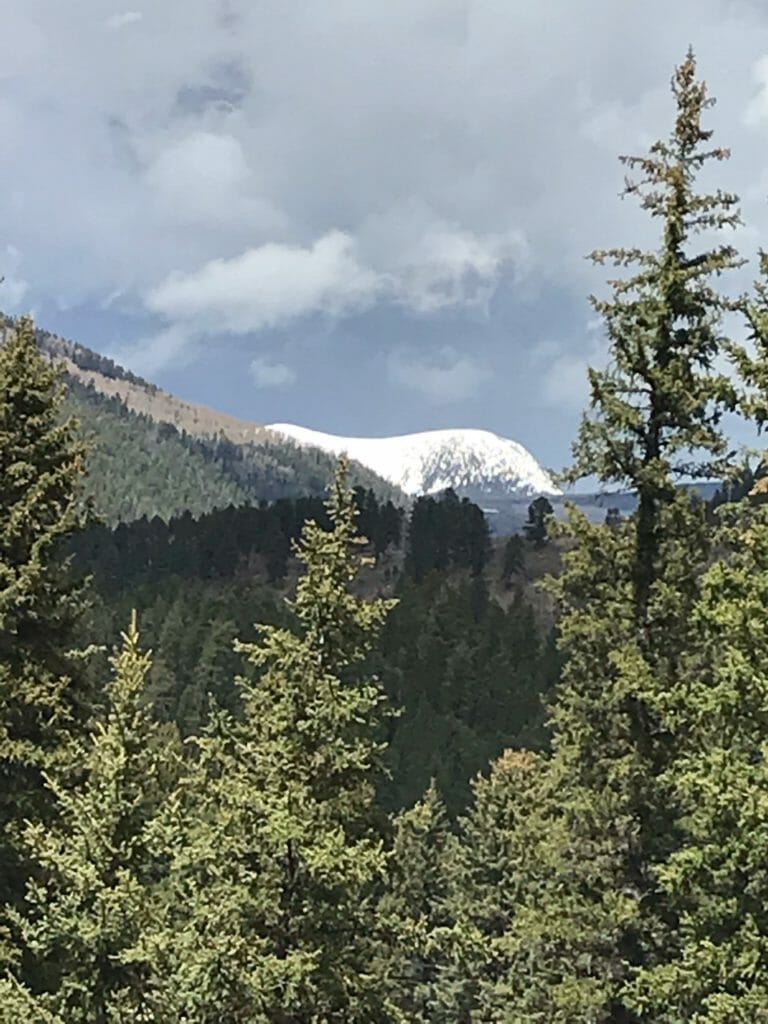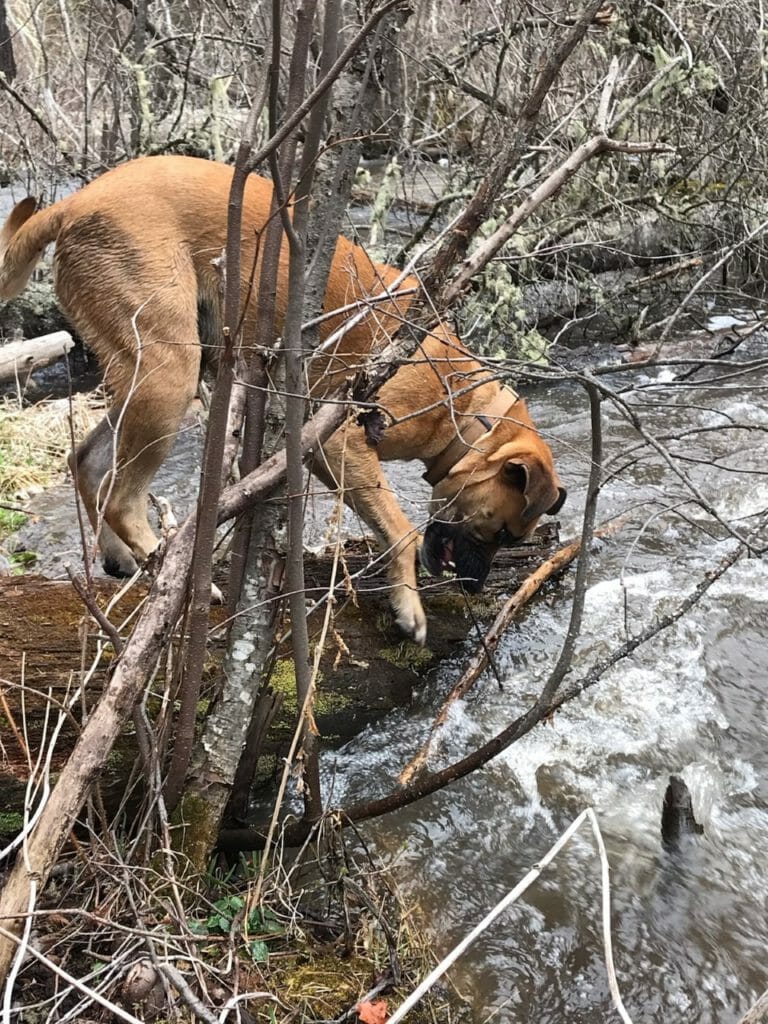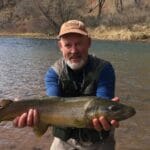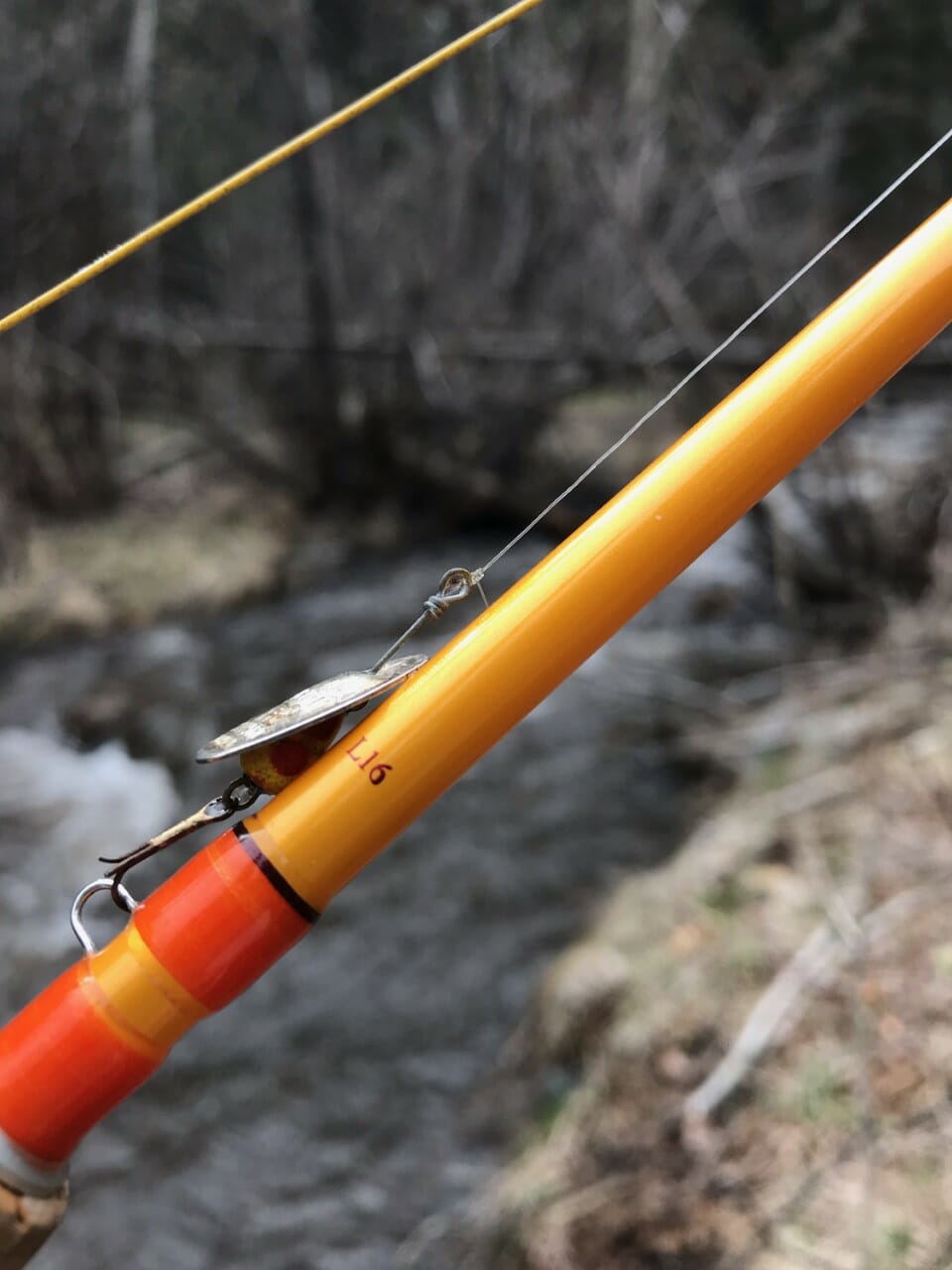Beyond its confluence with Cow Creek near the village of San Ysidro, the Pecos River’s southward crawl is rarely supplemented by significant inputs other than random flash floods. Deriving its existence from how much snow falls on a mere six percent of its watershed, the Pecos flows most of its length through a desert, which is why I’ve always had difficulty believing that it’s the sixteenth longest river in America.
Even now I can’t believe it, after this joyously fat winter and the Pecos raging with snowmelt. Driving upstream last week, I imagined I could detect a drop in flow above each feeder stream, but the river consumed them like so many peanuts. Mora Creek, which drains most of the eastern portion of the Pecos Wilderness, was a different story, as it doubled the Pecos flow. A little farther upstream, Panchuela Creek came in from the west, a mud blowing firehose.

I was heading for Jack’s Creek, a much smaller tributary at the end of the road. As I’d hoped, it was flowing clearish and showed enough fishy sidepockets to beat the Pacific Ocean odds I’d be facing on the Pecos. I was confident that my six-foot, two-weight and my breath mint box of spinners would do the job.
One of my favorite things about fishing during runoff is the notion that “doing the job” means simply getting a bite. To many anglers, particularly those who can catch plenty of fish regardless of the conditions, this may sound extreme if not cowardly. It’s not. Unlike parenting, staying in shape or, say, addressing the behavior of the world’s political fools, fishing during runoff is a space in which relaxing expectations is both allowed and recommended. The pressure’s entirely off. Sure you may catch a fish, or even several, but if you don’t, it’s not your fault.
My other favorite thing is all the water, the sound and smell of it everywhere, water fanning across floodplains and seeping from beneath. Josey sure likes it, especially on a creek scale where he can yank sticks out of logjams without drowning himself. On creeks the size of Jack’s, a dog can keep busy for hours, and with fast and murky water, I worry less about him spooking my fish than chewing on cougar kills like he did the other day.

Nowhere is spring’s youthful optimism more embodied than in a mountain meadow during runoff. At first glance the bleached and flattened grass makes the land seem asleep. Looking closer, you notice spiders speeding among new shoots of grass, fresh catkins on alder limbs that looked dead the moment before. You can see the land sweating, beads of water popping from the soil. So it’s not asleep. It’s faking, stealing a few more minutes in bed.
On how many summer mornings did I do just that when I was a kid? Even on fishing days, I couldn’t help lying still with my eyes closed in hopes that a quick doze or dream would push aside Mom’s beckoning voice and the smell of frying bacon.
Kids are like spring (i.e. runoff) that way, in their disrespect for clocks or anything that would incorporate too much structure into what should be inalterable natural rhythms. Ready when ready, and not a moment too soon.
As kids, we didn’t have to be so prominent to ourselves, didn’t have to know where the Pecos River gets its water, how long it is, or who cares. Being “woke” wasn’t a condition we would ever aspire to, and being awake, a state in which we simply found ourselves, wasn’t either. From my own childhood experience, I can tell you that I had way too much not on my mind to bother with such minutiae. I was just a boy. A boy who fished.
Back then I didn’t appreciate how being short was an asset, how it enabled me to negotiate willow tunnels towards promising holes, where I’d plop in a No. 2 Panther Martin (New Mexico translation: Panther Martinez), which I then raised and lowered it on a line kept tight in order to feel the fluttering of the spinner blade and the inevitable thud.
In all the crawling and crouching and dropping to my knees on muddy creek banks, I did not appreciate that returning to a standing position, at least gracefully and without pain, was a power that I wouldn’t always have. The same applied to jumping over and onto things. And when I fell as a kid, I didn’t lie there for several minutes, catching my breath and patting my pockets for my (as yet uninvented) cell phone in case I’d finally done it this time. I just got up and brushed off the pine needles. I bore fishing scrapes and sunburns with pride.
But as I was reminded on Jack’s Creek the other day, while aging is unstoppable, some things never get old. That smell of wet earth and the Panther Martinez. Thump, thump goes the blade, and my heart.
Toner Mitchell is TU’s water and habitat coordinator for New Mexico. He lives and works in Santa Fe.



